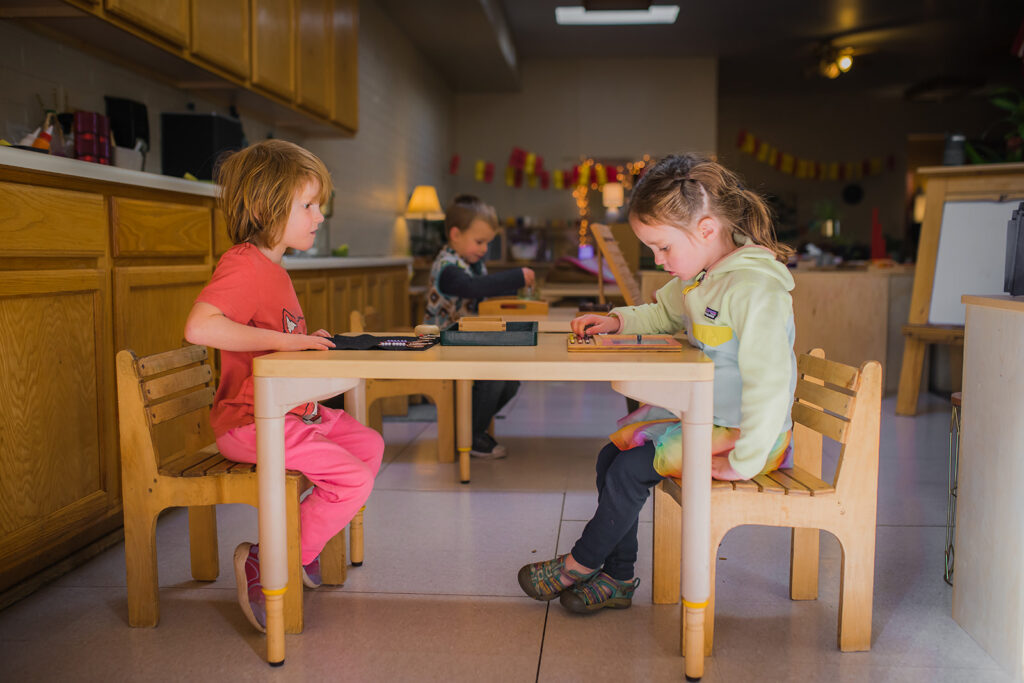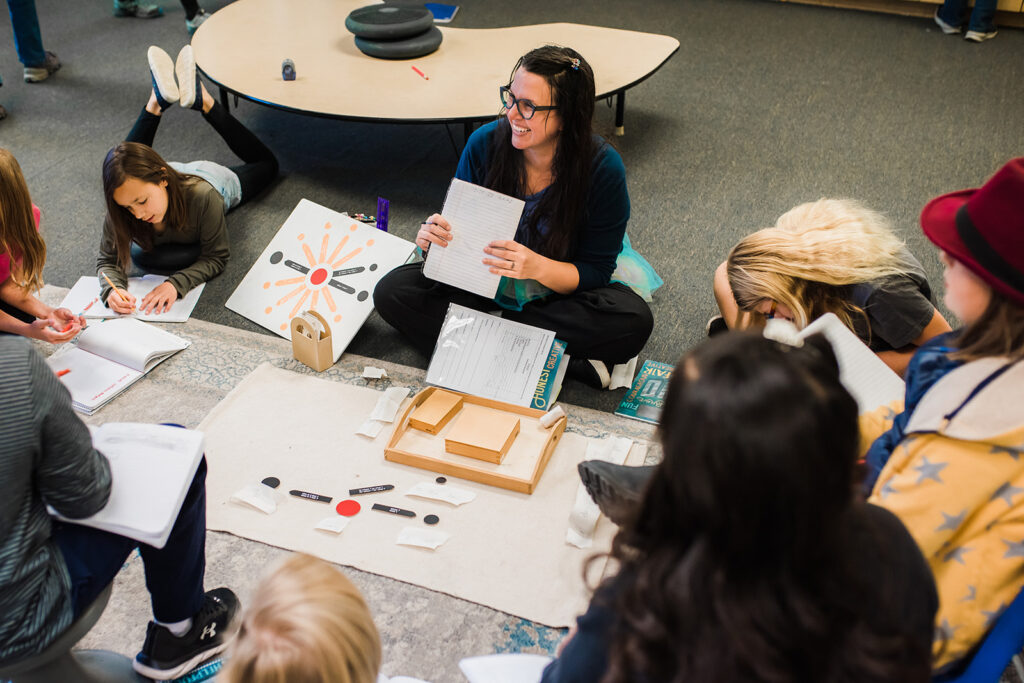About Us
About the Montessori School of Flagstaff
Our Story
We have been educating children in Flagstaff since 1982, when the school started as a family-owned private school educating early childhood students. As interest grew, so did the school, with more ages being served at multiple campuses.
When the charter school movement began in Arizona in the mid-1990’s, the Montessori Charter School of Flagstaff was the first school in Arizona to have its application for a charter approved by the Arizona State Board for Charter Schools. The charter school has been operating continuously since 1995. Our four campuses serve children from 18 months (private preschool) through 14 years of age (charter middle school). We offer a robust academic program that recognizes and addresses the needs of the whole child, including social, emotional, physical, and intellectual development.

The Classroom Community
Each classroom, depending on the level, can have up to three (including two assistant) teachers. Students of varying ages intermingle and learn from and with each other. An uninterrupted period of work time each morning, called the Work Cycle, is a chance for students to interact with the carefully prepared Montessori environment in self-directed work. Students practice work from a variety of subject areas including language, math, botany, geography, culture, science, reading, and more. The Montessori classroom is often described as a busy hive, with students quietly buzzing around as they independently accomplish their individual goals.

Multi-aged Classrooms
The multi-age classroom is an essential component of Montessori philosophy. As opposed to traditional schooling, which often features stand-alone classrooms of students all the same age, Montessori classrooms value the lessons and experiences that grouping students of varying abilities and interests can offer. Older students gain responsibility and confidence as role models, and master the skills they’ve learned by teaching and helping others. Younger students are exposed to more advanced language and vocabulary through interaction with their peers. They also have the opportunity to observe their peers’ more complex lessons and develop the intrinsic motivation to reach that interesting work.
Because all students’ instruction is individualized, those who need more time to master a concept can spend time doing so, while those who are enthusiastic about moving ahead can forge on. This variation in abilities is the expectation, not the exception, which helps reduce unhealthy competition and comparison between students. More information about the benefits of Multi-Age Groupings can be found here.
Demonstration of Learning
Students are assessed on their knowledge of particular concepts (which align with standards) on a continual basis. Teachers track their students’ learning daily and weekly, recording their progress. The scope and sequence of Montessori materials is based on a scaffolding system, in which each lesson builds on the one before it. In order to have success in understanding a concept, students must first have a solid foundation and mastery of the previous concepts. Our educators serve as guides through this self-guided learning process.
Charter students in 3rd through 8th grade participate in state-mandated standardized tests each year. While these standardized tests are not aligned with the Montessori method of assessment, as a public charter school, it is recognized that data collection at the state level is important. Although we have never stressed “the test” as a means of evaluating children, our standardized test scores are among the best in the state. This article provides more information about how the Montessori philosophy prepares students to perform highly on standardized tests.
Montessori-Certified Teachers
Each classroom from toddler through middle school has a lead teacher, as well as one or two assistant teachers. Lead teachers are all Montessori certified or are in the process of working toward their certification. The training of our teachers requires that they develop expanded observational skills so they can match their students’ developmental needs with appropriate materials and activities. They must also master teaching and classroom leadership skills that foster a nurturing environment and support learning.
Her [the teacher’s] aim is rather to suggest than to dictate. She stands behind the child, not in front of him; she does not so much lead the child as follow him. ‘She gives a ray of light and passes on.’
—from The Montessori Teacher by Ellen Yale Stevens, quoting Dr. Montessori
